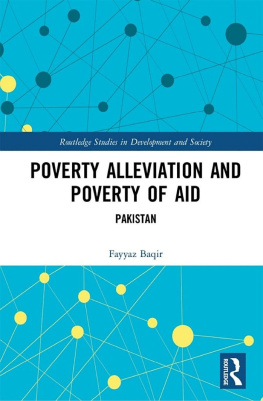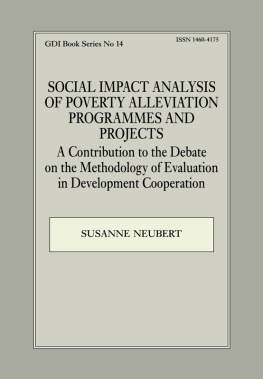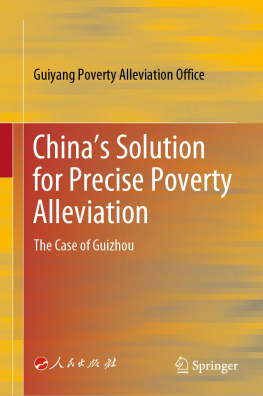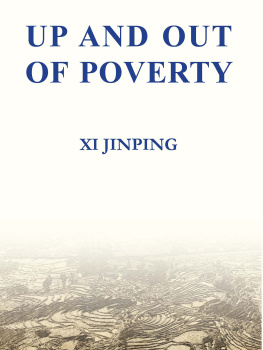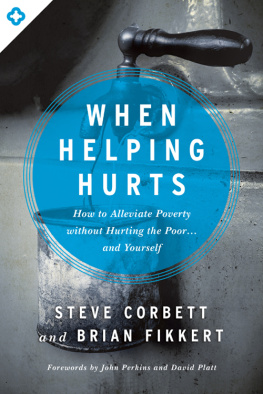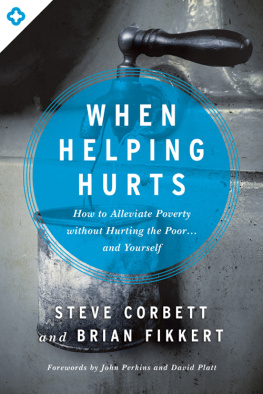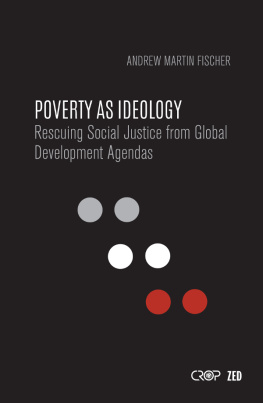Fayyaz Baqir - Poverty alleviation and poverty of aid : Pakistan
Here you can read online Fayyaz Baqir - Poverty alleviation and poverty of aid : Pakistan full text of the book (entire story) in english for free. Download pdf and epub, get meaning, cover and reviews about this ebook. year: 2019, genre: Politics. Description of the work, (preface) as well as reviews are available. Best literature library LitArk.com created for fans of good reading and offers a wide selection of genres:
Romance novel
Science fiction
Adventure
Detective
Science
History
Home and family
Prose
Art
Politics
Computer
Non-fiction
Religion
Business
Children
Humor
Choose a favorite category and find really read worthwhile books. Enjoy immersion in the world of imagination, feel the emotions of the characters or learn something new for yourself, make an fascinating discovery.
- Book:Poverty alleviation and poverty of aid : Pakistan
- Author:
- Genre:
- Year:2019
- Rating:4 / 5
- Favourites:Add to favourites
- Your mark:
- 80
- 1
- 2
- 3
- 4
- 5
Poverty alleviation and poverty of aid : Pakistan: summary, description and annotation
We offer to read an annotation, description, summary or preface (depends on what the author of the book "Poverty alleviation and poverty of aid : Pakistan" wrote himself). If you haven't found the necessary information about the book — write in the comments, we will try to find it.
Poverty alleviation and poverty of aid : Pakistan — read online for free the complete book (whole text) full work
Below is the text of the book, divided by pages. System saving the place of the last page read, allows you to conveniently read the book "Poverty alleviation and poverty of aid : Pakistan" online for free, without having to search again every time where you left off. Put a bookmark, and you can go to the page where you finished reading at any time.
Font size:
Interval:
Bookmark:
Poverty Alleviation and Poverty of Aid
Aid effectiveness has emerged as an intensely debated issue amongst policy makers, donors, development practitioners, civil society and academics during the past decade. This debate revolves around one important question: does official development assistance complement, duplicate or disregard the local resource endowment in offering support to recipient economies?
This book draws on Pakistans experience in responding to this question with a diverse range of examples. It focuses on a central idea: no aid effectiveness without an effective receiving mechanism. Pakistan is among the top aid recipient countries in the developing economies. It was a shining model in the sixties and it ranks among the highly underperforming countries after the new millennium. This book offers an insight into the dynamics of success and failure of Pakistan in availing foreign financial and technical assistance for human development and poverty alleviation. It draws on field experiences to present case studies on water, shelter, health, education, and health and safety at work to identify the causes and consequences of aid in relation to social reality. Findings relate to developing economies and would be of interest to a wide range of individuals within the development sector.
Fayyaz Baqir has served as CEO of the Trust for Voluntary Organizations (TVO), Senior Civil Society Advisor of the United Nations, and a development professional at Aga Khan Rural Support Programme (AKRSP). He has researched and taught at McGill University, Georgetown University, Harvard University, University of Idaho, Wellesley College, Tilburg University (The Netherlands), Gothenburg University (Sweden), Quaid e Azam University, Punjab University and National Defence University (Pakistan) on themes relating to inclusive governance, participatory development and sustainable change. He received a Top Contributors Award from UNDPs Global Poverty Reduction Network in 2007 and 2008 and an Outstanding Performance Award from UNDP for creating a vibrant small grants programme for low-income communities in Pakistan. He has travelled to more than 40 countries in Asia, Africa, Europe, and North and South America as part of his professional work.
Routledge Studies in Development and Society
Mining and Social Transformation in Africa
Mineralizing and Democratizing Trends in Artisanal Production
Deborah Bryceson, Eleanor Fisher, Jesper Bosse Jnsson and Rosemarie Mwaipopo
The End of the Developmental State?
Edited by Michelle Williams
The Language of Global Development
A Misleading Geography
Marcin Wojciech Solarz
Informal Urban Street Markets
International Perspectives
Edited by Clifton Evers and Kirsten Seale
Cultures of Development
Vietnam, Brazil and the Unsung Vanguard of Prosperity
Jonathan Warren
The Role of Education in Enabling the Sustainable Development Agenda
Stephanie E.L. Bengtsson, Bilal Barakat and Raya Muttarak
The Gates Foundations Rise to Power
Private Authority in Global Politics
Adam Moe Fejerskov
Poverty Alleviation and Poverty of Aid
Pakistan
Fayyaz Baqir
Inclusive Innovation and Justice for Development
Theo Papaioannou
For more information about this series, please visit: www.routledge.com/Routledge-Studies-in-Development-and-Society/book-series/SE0317
Pakistan
Fayyaz Baqir

First published 2019
by Routledge
2 Park Square, Milton Park, Abingdon, Oxon OX14 4RN
and by Routledge
711 Third Avenue, New York, NY 10017
Routledge is an imprint of the Taylor & Francis Group, an informa business
2019 Fayyaz Baqir
The right of Fayyaz Baqir to be identified as author of this work has been asserted by him in accordance with sections 77 and 78 of the Copyright, Designs and Patents Act 1988.
All rights reserved. No part of this book may be reprinted or reproduced or utilized in any form or by any electronic, mechanical, or other means, now known or hereafter invented, including photocopying and recording, or in any information storage or retrieval system, without permission in writing from the publishers.
Trademark notice : Product or corporate names may be trademarks or registered trademarks, and are used only for identification and explanation without intent to infringe.
British Library Cataloguing-in-Publication Data
A catalogue record for this book is available from the British Library
Library of Congress Cataloging-in-Publication Data
A catalog record has been requested for this book
ISBN: 978-1-138-48098-8 (hbk)
ISBN: 978-0-429-46307-5 (ebk)
Typeset in Times New Roman
by Apex CoVantage, LLC
Dedicated to
A Stranger in the New World
Illustrations
Figures
2.1Water tanker
2.2Water tankers
2.3The imbalance
2.4Perspectives
3.1Map of Islamabad showing location of katchi abadis
3.2Squatter settlement in Islamabad
4.1Green Revolution
5.1Picture of schools in Pakistan
5.2Picture of schoolchildren in Pakistan
5.3CARE school
Tables
5.1Policy options for universal quality education
7.1Appropriate process and role for strengthening collaboration between the people, professionals and development agencies
Boxes
2.1How frugal science works: a lesson from Akhter Hameed Khan
3.1Art of doing simple things in difficult way. Experience of SKAA
3.2Upgradation and rehabilitation work undertaken by KAC
Preface
This book is an attempt to reveal the tacit knowledge that I harvested over the past 30 years travelling every nook and corner of Pakistan as a development professional. It gave me the opportunity to unlearn many things I had learned during my schooling and learn many new things known only to the toiling, creative and illiterate people of my country. I am sharing it in the hope that it will ignite the spark in many caring hearts who believe that anyone can make the difference and it begins with the self. It is also a tribute to some of my teachers who taught me how to feel, think and act. The summary of all that I learned during my years in the field is that for poverty alleviation you dont need a big purse or big mind but a big heart.
Fayyaz Baqir
McGill University
February 2017
Acknowledgements
I want to thank the OBrien Fellows in Residence programme for providing me the opportunity to write these case studies reflecting my three decades of work among low-income communities in Pakistan in different capacities. This research would not have been possible without the help of many individuals and institutions. I want to express my appreciation to the Centre for Human Rights and Legal Pluralism (CHRLP) and Institute for Studies in International Development (ISID) of McGill University for hosting my stay for one year and providing me the opportunity to exchange views on my draft chapters with the students and the faculty. Special and sincere thanks are due to Professor Nandini Ramanujam, Professor Francois Crepeau and Professor Sonia Laszlo, whose continuous encouragement kept me on track during the course of my work until its completion.
Professor Madhav Badami provided very incisive comments for improving my case study on water. I am heartily grateful to Ms. Sharon Webb and Sheryll Ramasahi for their constant help during my stay at McGill Faculty of Law, and all other colleagues for their kind assistance and encouragement during the research. Parisa Akberimalkeshi helped me during the last stages of my work in dealing with the formatting requirements. Special thanks are due to my wife Rehana Hashmi for her continuous support and encouragement.
Next pageFont size:
Interval:
Bookmark:
Similar books «Poverty alleviation and poverty of aid : Pakistan»
Look at similar books to Poverty alleviation and poverty of aid : Pakistan. We have selected literature similar in name and meaning in the hope of providing readers with more options to find new, interesting, not yet read works.
Discussion, reviews of the book Poverty alleviation and poverty of aid : Pakistan and just readers' own opinions. Leave your comments, write what you think about the work, its meaning or the main characters. Specify what exactly you liked and what you didn't like, and why you think so.

